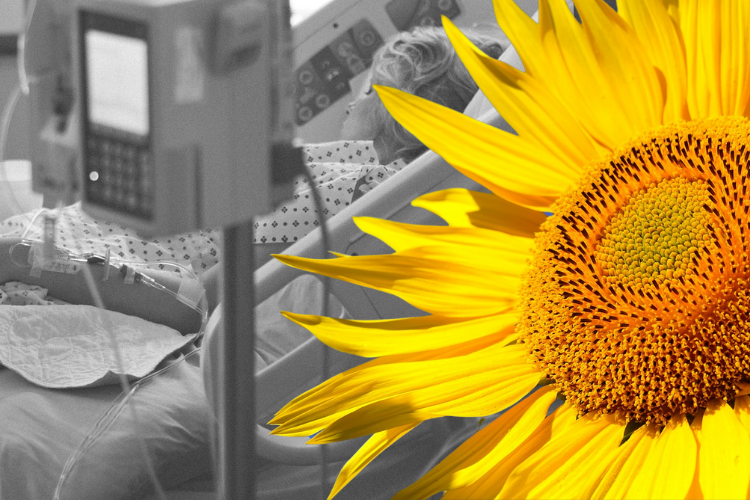
Mi Sheberach–Imagining a Post-Cancer Treatment Future
After I was diagnosed with breast cancer in late 2020, people often told me, “One day, this will all be behind you.” Each time I heard that, I reflexively winced.
I wasn’t sure why those words bothered me. I wanted all the optimism and encouragement I could get, and I recognized that the sentiment was expressed in the spirit of hope and confidence. But every time someone told me that, I could only offer a tight smile and quick change of subject.
Part of my discomfort with those words was because, in the most literal manner, they were inaccurate. My treatment included a bilateral mastectomy and reconstruction; the proof of my disease will always be on my body. Pointing this out seemed churlish, so I didn’t, but that didn’t stop the snarky part of my brain from wanting to respond, actually, it’ll always be front and center.
More than that, though, what bothered me about those words was the implicit idea that illness works on a timetable. I’ve had chronic pain for my entire life and know well the discomfort that people exhibit with the idea of living with pain. It goes against the idea of what it means to be “normal,” as does living with illness. But it’s not the only way to think about these conditions, and in fact, it can be pretty alienating.
I thought this a lot during the six weeks I underwent daily radiation treatments, because the hospital where I was treated is forty-five minutes from my house, and spending ninety minutes alone in a car gave me a lot of time for rumination. At the same time, I kept getting Mi Sheberach stuck in my head, which surprised me, because I don’t often have prayers running through my head. So one day I decided to actually read the prayer, hoping that that would shake its echo out of my brain.
I listened to a recording and then read the English translation, and one word caught my eye: “enliven.” It’s only used once in the prayer, but it jumped out at me because it’s not a word that I traditionally associate with illness or healing. I’m used to seeing “enliven” in the context of something that’s appealing or entertaining. Since I’d found very little about cancer entertaining, I found its inclusion in this prayer surprising.
But the more I thought about it, the more I appreciate that this word is included in a prayer for illness and healing. Cancer is scary and all-consuming; for too many days during the surgery and recovery period, and then during the radiation weeks, I felt drained and fragile. “Enliven,” with its connotations of fun and light-heartedness, was the word I needed to hear. It conjured images of sunshine and flowers; it was the color yellow and the scent of the ocean. It was a glimpse of what lay ahead, of my post-treatment future.
Post-treatment, but not post-cancer. Because while my prognosis is good, cancer will never be behind me. I might, as those well-wishers hoped, never think too much about my cancer again, or I might be overcome with emotion six months from now. I might forget exactly when I received my diagnosis, or I might cry every year on the anniversary of my mastectomy. No one path is the right one, and neither forgetting nor remembering is the lesser way to live with illness. But if – or when – the reality of living with cancer becomes too much, I will remember Mi Sheberach, and the enlivening hope I found there.



